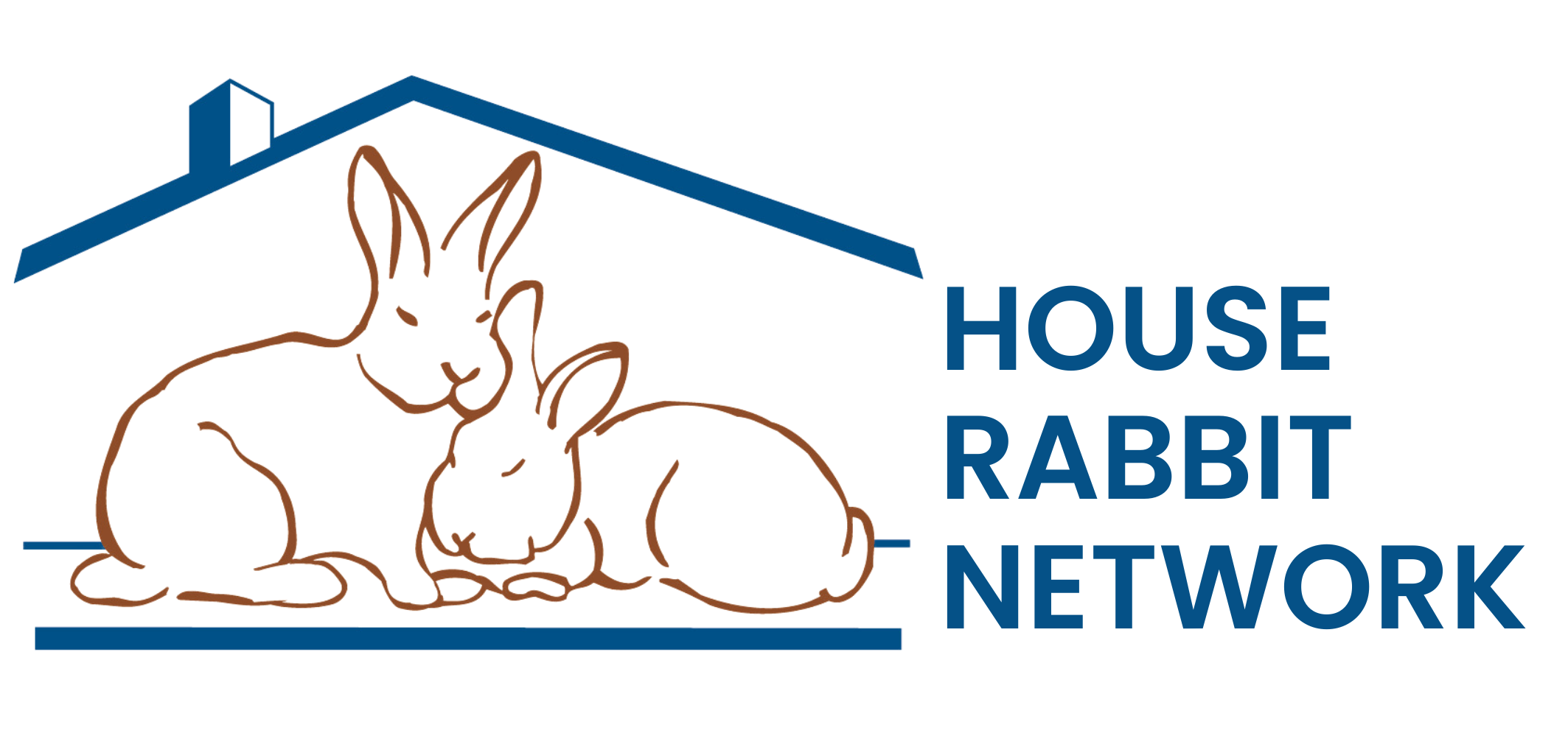Calvin’s Care Corner
Rabbit Treats

Welcome to the New Year, Readers! Have you made a resolution to eat a more balanced diet and decrease your treats? This idea is equally important for your rabbit. Here’s a refresher on rabbit treats for all you doting parents. There are several resources available on the web and in books which discuss diet in greater detail. I urge you to read them as this is only an overview.
An adult rabbit’s daily primary diet is basic.
- unlimited grass/timothy hay
- restricted high-fiber pellets [apx. 1/4 c. per 5 lbs. body weight
- fresh veggies [apx. 2 c. per 5 lbs. body weight]unlimited fresh water, especially in hot weather
Anything else is secondary, and thus a treat. It is generally held that daily treats combined can be approximately 1 heaping tablespoon per 5 lbs. body weight. Did you know that a 5-pound rabbit requires approximately 170 calories daily? Here’s a suggestion: put together what you would typically feed your rabbit in a day. Take out a measuring cup, tablespoon, and food value guide. Read the pellet label, and see how your portion sizes (and associated caloric values) compare to the suggested daily guidelines for your rabbit.
What is a treat? A treat should be something special that you give sparingly and in rotation. Good treats are fresh fruits (e.g., apple or pear, 1/4-inch slice, no seeds; banana, 1/2-inch slice) or dried fruits (e.g., raisins or craisins, 2-3 pieces). A good treat could even be a green that is normally hard to find, a hay-cobb chew, or a grass mat. (Some consider oat flakes, rolled barley, or an almond OK.) If you give your rabbit 1/2 a carrot daily as part of her veggies, or papaya enzyme tablets, remember to consider them part of her daily sugar and calories. Not-recommended items are ALL of those available commercially, such as formed and colored puffy things, cereal- or mueslix-based chews (i.e., having seeds and nuts), yogurt drops, and pellet mixes that resemble “bunny trail mix.” Never-ever items are those that are predominantly sugar and fat (e.g., chocolate, chips, crackers, candy, spicy or salty foods), rhubarb, raw beans, potato peels, or any spoiled produce.
There are health risks. House rabbits are rather sedentary, and excess calories that aren’t burned off can lead to several health risks, especially obesity. Foods high in fat can lead to fatty liver disease or fat deposits in the arteries. Foods high in simple carbohydrates [sugars or starches] can convert to fat OR will pass unconverted into the cecum, and spur a bloom of “bad bacteria,” which can lead to several serious digestive system ailments. Rabbits have delicately balanced flora in their guts; it doesn’t take much to “upset the applecart.”
Don’t believe the hype. Prepared store-bought treats are designed for you the paying consumer, not your rabbit. Do you think we rabbits really care about fun shapes or chew logs that claim to “simulate natural feeding habits” or “provide dietary variety?” No, we don’t! NONE of those items provide any nutritional value (does the term “empty calories” ring a bell?). Rabbits get ALL of their necessary nutrients and energy from their daily primary diet. If you want to give your rabbit variety (and save money on pricey, packaged “junk food”), introduce a new green or fruit, or hide a couple of raisins in a cardboard or willow chew toy.
Stick to the basics. We rabbits can be exceptionally cute and often feign “being put-upon,” but giving us extra calories, sugars, and fats is NOT the way to “treat” us or show us love. We need you to be thoughtful about our diet and not succumb to bunny begging!
If you are concerned that your rabbit is overweight or may need a diet modification, consult your vet! Weight loss and a diet change are best done with medical supervision.
